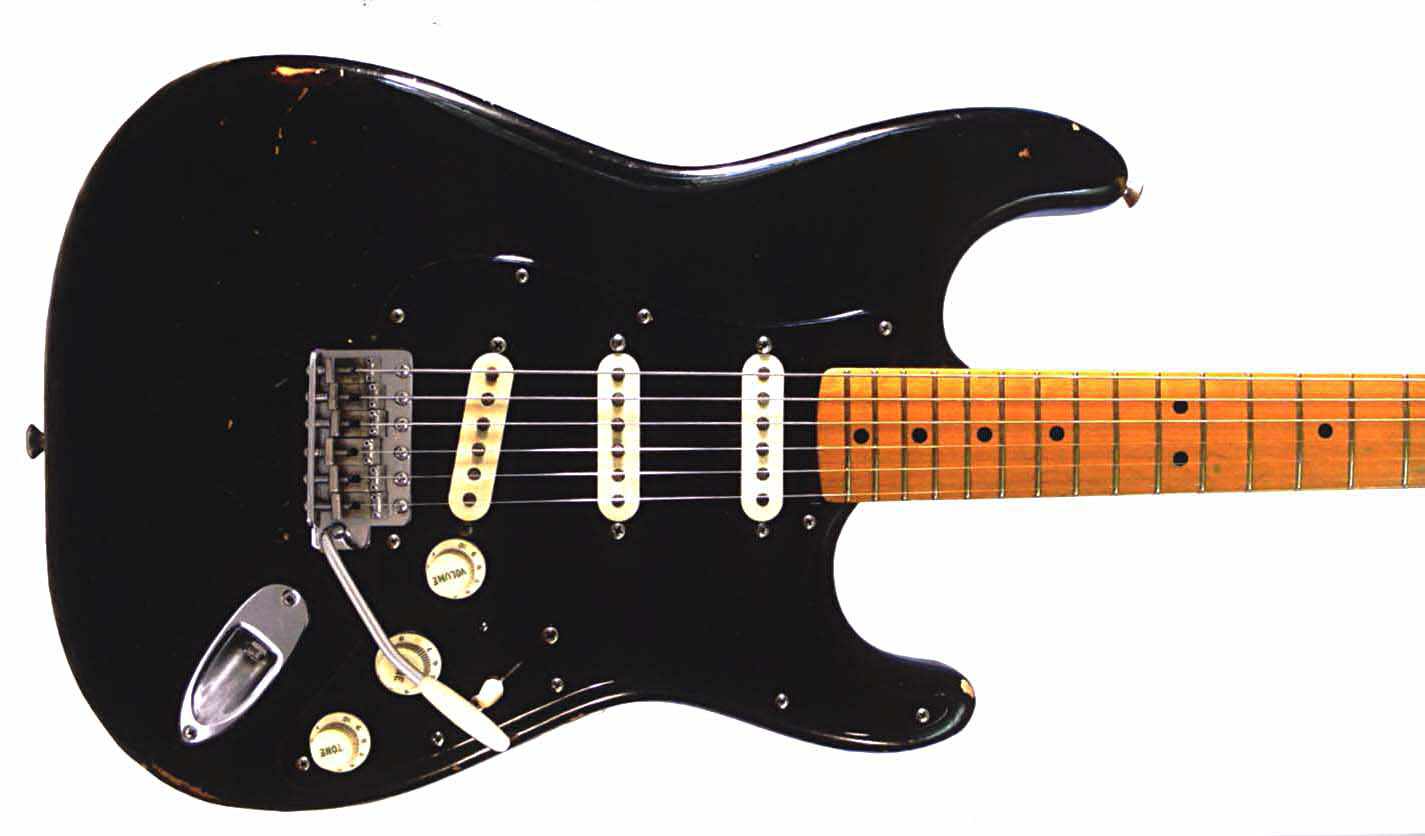Hi all, since ya’ll are self hosters, I’m sure you all deal with all sorts of different pieces of hardware, accessories, peripherals, and what not; just wondering if you could please share your favorite, solid, “go to” brands for overall things you need for your setup such as cables (all types), adapters, dongles, power accessories, hubs & docks, flash drives, you name it! I’m sure it varies depending on exactly what type of equipment you’re looking for but just looking for overall good brands to stick with for such things. I obviously know the main ones like Anker, Cable Matters, Ugreen, maybe Belkin, Idk. Would love to hear your recommendations! Thank you
None. One year, Lenovo has the best Linux support. Another it might not. One year, Logi makes a solid mouse. Another year they do not. One year, a company makes a great product. Another year there is a privacy scandal.
Look at what devs of the projects you use recommend, and read reviews withing 3 months of your purchase. Don’t pick a brand, pick a product.
Thank you
Open source project device support pages are always my first stop. If you have access to a git repo for the project, use gource to visualize who is doing what and where within the project recently. This will make it obvious what hardware the main devs are invested in the most, and therefore what will have the best support and user experience.
Wow that is amazing, thanks for sharing.
Anker for docks and dongs.
Removed by mod
Docks and dongs! Two things you ought love lol
deleted by creator
Plugs and condoms too. Don’t forget to wrap your strange usb outlets.
deleted by creator
Networking I really like TP-Link with their Omada range. It’s like Ubiquity.
Spinning Disk drives I always go Hitachi now.
USB thumb drives SanDisk have been pretty good for me.
Cables I like Ugreen, chargers I like Anker.
I’ve also found TP-Link to be the best bang for the buck when it comes to home labbing. I have several of their managed switches at home, a couple almost 10 years old, and they keep on trucking.
Perfect! Thank you
For most computer stuff, whatever has the best Linux support, because Linux is the operating system I use btw
Same, I am also a Linux user. What are your favorite brands?
Same here, I mostly let work buy Dell but at home I mostly bought Lenovo.
I have a Dell laptop, so maybe I should stick with dell devices if I add anything more. Currently searching for a docking station, so Dell is probably my top choice… Not what about all the cabling?! lol
I like the Dell docking station, one cable for charging, external screen, mouse, keyboard, audio devise, SD card reader, camera. Back during my MacBook days plugging everything in and out was a terrible experience.
Yup that sounds ideal! i’ve had so much trouble with the ONLY ports on my laptop, being two usb-c ports smh. Just over the years of wear and tear they both became loose and stopped working. Had a shop replace one and he salvaged the other with adding a bit more solder. I just want to get devices away from these dog gone ports and onto a dock lol
btw
🤔
I was a die-hard Logitech fan for many years, but over the past five or so their quality has really gone downhill, with their prices remaining the same if not increasing. I have a full set of Logitech peripherals but when the time comes to replace them Logitech will not be in the running.
deleted by creator
I love the wheel toggle more than I could ever have imagined.
deleted by creator
I’ve been using MX masters since the first model, my only gripe however is I always wear through the thumb pad button well before the rest of the mouse is showing any wear, the rubber was just not up to scratch. All of my 2s’s have a hole cut in the rubber there to get to the button below just to make it work.
The 3s that I have a couple of are pretty sturdy and seem to wear much better in that regard, and the metal scrollwheel on that model is better too as it doesn’t have rubber to wear out and go gummy either.
The stock pads always wear out super fast too, so I put glass on one of them and it’s been a game changer.
deleted by creator
I just searched glass mx master 3 pads and there were some available online.
deleted by creator
Then get some higher end Teflon ones, they last much longer than stock. or get generic glass circle pads, available as small round blanks that can be fit to any mouse.
Mine seem not available any more, they were a cheap chinese copy so might not have stayed in business.
The rubber on mine turned sticky and I got rid of it. It was nasty to touch. I’d get another if it was a different material. Ended up with a G903 but not keen and want something new after just a year.
What do you think will be the alternatives. I have looked around and realistically Logitech kind of dominates the market as far as mice and keyboards.
Steelseries is a pretty good brand, especially in the premium headset side. Works well on Linux too.
This is great to know, thanks. What do you plan to use as replacements? and do you typically try to stay with the same brand for most of your gear or does that not matter?
I’m looking at Keychron for a keyboard. I recently replaced my Z-5500 surround speakers with a cheapo soundbar off Amazon. I’d like to get something comparable to the old Z-5500s (which were phenomenal) but I haven’t found anything similar yet. And Logitech doesn’t make anything in their league any more. Aside from those I haven’t really looked for anything else. If I were to find a brand that reliably offered good-quality products with the features I’m looking for I would happily buy a whole set from them, but I have no problem with mixing-and-matching brands either.
Keychron hardware is solid and I have no complain in the typing department. In fact, having hot-swappable switch is very useful for extending the life of the keyboard as you can easily replace broken switches instead of replacing the whole keyboard (I already need to replace my W switch after a year). My only gripe is the shitty firmware, but I have an older model so I can’t say if the latest model still have shitty firmware.
Well speaking of Amazon, I actually read that Amazon Basics is a great option for low level stuff like cables, chargers, adapters, etc.
I can simultaneously confirm Keychron makes a solid keyboard while also saying their shit. I have 1 White LED one that works perfectly. I have a RGB one that is in theory identical but it constantly drops Bluetooth connection, and constantly reppppppppppeats keys.
Cheaper than Logitech - that is for sure. Neither has any customer support.
I have updated the Firmware on both to no effect.
Might be similar issue with mine. It usually has some issues with dropping bluetooth connection and repeating keys when the battery is not full. My solution is to disconnect the battery and use it as a wired keyboard.
Remember power!
First and foremost, well-grounded power is essential. I haven’t done the whole house thing yet, but I am thinking about it and curious to know of other’s stories.
For surge protectors, I like GE wall taps for form factor and Furman racks when there is space & need.
For an uninterruptible power supply, I like APC. While they aren’t made in the USA like they used to (RIP), they have been reliable for me.
Network (ISP Modem, WIFI, Switch) and tower CPU are all driven by UPS power. APC UPS, at least, is always drawing off the battery, so the upstream electronics are protected…a massive surge is far more likely to take out the battery. For laptops, surge protection is enough.
I have not yet surge-protected the ISP lower power input… this is a real risk! I found a cheap one off Amazon, but I am worried it will degrade the network --> whole house may be better.
Note - I have had a lightning strike get sent down the cable line, enter the home, blow out the cable modem, traverse into the network switch, blow out the switch, and nuke every active ethernet port (NAS, Apple TV, etc.), as well as jump the wire into low power security, physically blowing a hard-wired security panel off the wall and damaging a few hard-wired security points. Pretty crazy!
Holy crap thats crazy! Are simple things like surge protectors pretty much equal? Is there a point in researching brands for such a presumably simple thing?
Depends, it’s all a gamble. Think of it like this … how much do you spend on your kit? A top end GPU is $1500 USD. A decent surge protector might cost $15. However suppose you cheap out and get one for $9.99…then a surge blows thru it and smokes your mobo&gpu. how much did that $5 in savings cost you?
there is quite a bit that goes into it. And yet it’s not magic. Also, protection does wear out as load & surge is applied. So it’s not really worth it to pay top end, over and over, at least imo.
deleted by creator
Ahh good to know. Adding to the list lol I’ve heard the name mentioned a few times but never really looked into their stuff. Thanks
Routers - Netgate / pfSense. Best router GUI I’ve found. If you understand what you want to make happen, chances are you can figure out how to make it happen without touching a CLI. And generally free of Cisco for license bullshit.
Routing and WiFi- Ubiquiti. Not as flexible as pfSense but even easier to use and if you do both routing and WiFi with them you get a bunch of cool analytics. Their surveillance package is great too as long as you use their cameras, pretty much the best mobile surveillance app I’ve found. Door access system also gets a mention.
Synology for almost everything they do, but particularly storage, backup, surveillance (they support almost every camera, albeit with a license requirement) and hosting of self hosted apps using a nice docker GUI. Not as much bang for buck vs. an old PC in terms of CPU power, but very easy to use.
For home automation- Home Assistant or HomeSeer. Both are open platforms that support almost everything. Home Assistant pulls lightly ahead for me because it’s free and has more 3rd party integrations, even if it has a steeper hearing curve in some areas and some rough edges that require tweaking for basic usability (specifically, Z-Wave requires the ‘z-wave js ui’ plugin to take real control over a Z-Wave mesh, and Z-Wave door locks need the Keymaster plugin to get any sort of user code management, neither are straightforward to install). That said- pair Home Assistant with a Z-Wave dongle and some Inovelli light switches and you have a really beautiful setup with insane flexibility.
Thank you! Pfsense is one thing I’m confused about… Its a software, right? Does it matter the type of router you use it on? Or do you buy routers that specifically have it installed?
It’s sort of both.
Netgate is the company that develops pfSense. They make pfSense available as a download that you can run on your own hardware or your own VM. They also sell pfSense routers that have official support and a free upgrade to their slightly nicer ‘pfSense Plus’ version. I generally recommend the official hardware (support the project and all that, and it’s good quality if a bit more expensive). However if you want to save a few bucks you can get a cheap NUC-type PC with a few Intel Ethernet ports from Protectli or similar brands on Amazon.
So would a router running pfsense then also become my primary WiFi routers too? Or is it best to keep pfsense strictly as a firewall and have a separate router strictly for WiFi?
So would a router running pfsense then also become my primary WiFi routers too? Or is it best to keep pfsense strictly as a firewall and have a separate router strictly for WiFi?
pfSense doesn’t really do WiFi. So you’d use it as a router/firewall, then have something else do your WiFi. I generally recommend Ubiquiti.
It’s worth noting that a ‘WiFi router’ is usually 3 separate things in one box- a router/firewall, a WiFi access point, and a small switch of usually 4-6 ports. In a home you usually want these things in the same place so they’re in one box. In an enterprise, the router/firewall is usually in the basement where there’s no WiFi, network switches may be in many places and a tiny one in the router won’t help you, and WiFi is up by where the workers are. So it’s that sort of setup that pfSense is designed for.
The way I have my place set up- a pfSense machine is the router/firewall. I then use Netgear managed switches (there’s a few, mainly GS110TP’s), and Ubiquiti WiFi. The Ubiquiti controller runs inside Docker on a small Synology box. Highly recommend this setup.
But I’d just as highly recommend going Ubiquiti all the way. Dream Machine Pro SE is a great base router/firewall, and it has a built in PoE switch so you can hang a few U6 Pro access points off it. You get a bit more flexibility with pfSense but in most home environments it’s not needed.
Wow thanks for the info, sounds like some hefty stuff to learn lol. So I’m kinda broke and can’t afford new hardware ATM. I only have a tp Link archer ax1800 WiFi 6 router and a belkin rt3200 because I read its great for openwrt. Wellll openwrt completely overwhelmed me so I never got a chance to properly implement it. One of these days I’ll need to sit down with more patience and try to understand the firmware better
Try dd-wrt firmware. Lets you dip your toe into the water so to speak, with a lot less of the complication of openwrt. At least it used to when I last used it several years ago.
If you have a spare old PC, pfSense is a great way to screw around. Even if it only has one NIC there is (or at least used to be) basic hostap support so you could use the builtin wifi card as a base station. Otherwise spend $20 on a supported USB-Ethernet adapter and you’ve got yourself a router to play with.
thanks but I dont think either of my routers are dd-wrt compatible unfortunately
Servers: Supermicro. Dell in a pinch
Switches: HPE Aruba for 10gig, or Mellanox for 100gig
Routers: I’m not that picky, but I use Fortigate as I scavenged some leftovers at work
UPS: Eaton
Network cards: Intel for 10gig, IBM for 8 or 16gig, Mellanox for 100gig
Harddrives: Exos
RAID stuff: LSI MegaRaid.
GPU: Don’t really care, but I have a bunch of NVidia Quadro.Most of the above preferences are due to scavenging leftover hardware at work.
Wow wow wow, you guys are light years ahead of me in the equipment department. I plan to learn and utilize a lot of that stuff but I was more interested in the smaller everyday things like chargers, cables, flash drives, adapters, etc lol still great info though. I was super intruided by supermicros server selection when I went down that rabbit hole. Truth is, I’m not nearly ready for a server yet.
Depends on which aspect of you needs to be ready. Use case and functionality? Meh, now is as good time as any. Might as well get used to the differences from a desktop to servers early on. Especially if you still don’t really have the knowledge. Learn by doing!
Budget? True, they can be pricey, even on the after market. But if you or a friend works anywhere that had servers, chances are that the IT department might have something that’d otherwise end up in the trash. A good example here is this VM server with rather old CPUs and 256G of RAM. It wasn’t fit for its pyrpose anymore, and its hardware configuration made it a bad match for our storage clusters. Today it’s a minecraft server for my kids and their friends.
EDIT: Actually, the older PowerEdge servers feom Dell aren’t that pricey on my local marketplace.
Thanks! I certainly do plan to venture into servers, but its a tad too confusing ATM as I’m currently trying to learn other things and projects right now. Homelabbing is definitely a future plan and goal of mine :)
Damn son, are you me back when I worked at a MSP? Good taste in gear 💪😎💪
Nah, I work for a geophysical company with a bunch of storage clusters and data crunchers around the world.
For networks, much of it depends on budget and requirement. Do you want home security cameras on your network? Are you someone who works with large files all the time? Do you have gig plus Internet speeds? Do you own or rent? Lots of factors can affect choices. Start from there and build the infrastructure that works for your need. Don’t go looking to build a monster you’ll never really get moving, that’s a waste. Brand will become a factor once you look at the capabilities you need, you’ll see names come up over and over. At the consumer level, there are a few but price is also a factor. Not much help, I know.
I gotcha, that makes sense. I’m really at the beginning of my homelab or self hosting journey. I’ve been exploring alot of random aspects and keep forgetting to think about the basic things first. My problem is figuring out how to start and setup things properly, but that’s a whole other thread/story lol
Do you have any recommendations for home security cameras that are PoE?
I like NVR systems with PoE, Lorex makes some good ones and they do a decent job at trying to secure your device. Granted, that same security makes it more challenging to reset a password, but it’s good to know someone jacking your NVR wouldn’t be able to just use it.
Thanks! I’ll check them out
There was a time I’d avoid Western Digital cause everything they made fails, and I mostly leaned toward SanDisk cause they were very reliable, and well, my avoidance list got larger.
Hmm I always though western digital was pretty decent for hard drives?
They are. Follow the backblaze drive failure reports for quality checks.
I’ve had the exact opposite experience historically. Of 5 Seagate drives I’ve purchased over the last decade or so, only 1 of them is still working. Meanwhile 25+ WD hard drives are still in production over the same time with only 1 that started throwing smart errors a couple years back.
Western Digital owns SanDisk now fyi
That’s the joke.
Isn’t Western Digital one of the more reliable hard drive manufacturers?
Not in my experience. I’ve never had a Hitachi that didn’t fail, and almost every WD I’ve ever had failed. Never had an issue with Seagate or Samsung before.
There’s your individual experience, but I’m basing my statement on Backblaze’s annual drive failure rate reports.
I’ve been liking Mikrotik stuff for networking lately. Not as user friendly GUI as Ubiquiti but definitely not as expensive.
I have a few Mikrotik switches mixed in with my Unifi rig, they are excellent bang for buck, well featured, easy to program and have a huge model selection covering basically every possible use case.
I have heard alot of really good things about Mikrotik. I haven’t explored them as I haven’t had many networking needs, but maybe I’ll take a look at their offerings. Thanks
Just bought a Mikrotik LHGG kit for LTE internet and went from about 3-5 Mbit/s down with a TP-link (archer 400 something) to 30-150mbit/s down and much more stable. I’m really impressed with it and WinBox and will for sure have a good look at their switches when it comes to putting up the home network infrastructure. Though, as you said, you need to know what you are doing and need a better understanding of networking but it also gives you a better flexibility and more things that are possible to do.
I use a VPS for the vast majority of my stuff to be clear, but from my experiences with PC building in particular, there’s not a PSU manufacturer I’d ever want to use anymore other than EVGA. The PSU in my PC randomly started dying some months back, randomly completely cutting power when it’d go over a certain voltage draw it was rated for and could previously handle without breaking a sweat, to the point that it severely disrupted both work AND play for me, when it came to heavier work tasks or heavy games. They replaced it for me while only requiring minimal information (I think the serial numbers, information about how it was behaving, and what tasks I do with my computer so they’d know I didn’t kill it by doing insane Bitcoin mining 24/7 or other cryptocurrency stuff, which they do not cover under warranty), and not only that, but since they did not have any more of my old model available (a 750 G3), they instead gave me a newer and better one (a 750 G5).
Man thats shitty to hear. At least they fixed it! I’m having similar issues with my two usb c ports on my laptop and its been solo annoying. Just a ton of random disconnects and reconnects. I had one port completely replaced but I still have the issue from time to time.
Hey, I am very interested in the economics of self-hosting on a VPS vs building a whitebox server. As it stands, if I were to build a decent server from scratch + storage, it would cost me anywhere from $700-$1000+.
Which services do you run, and does it make sense for you to run them on the VPS? I’m thinking of just having storage at home and most of my compute in the cloud
I use a Hetzner VPS and as it stands right now I’m on their plan CX31 which costs me 9.20 EUR a month, plus additional 50 GB of storage which itself costs me an extra 2.20 EUR a month. Most of what I run on there instead of off my home computer are services I allow people other than me to use, some examples being an Akkoma instance, FreshRSS, email (using iRedMail), and a variety of game servers that come and go as me and my friends need them. Their cheapest plan has the ID CX11 and costs only 3.29 EUR a month and was actually perfect for my needs up until I started running some game servers that were a bit more heavy on CPU and RAM requirements like heavily modded Minecraft. The additional storage I mainly only started needing because of the Akkoma instance in particular, as the databases for fedi software can get very large very fast (and I’m not even caching media, it’s just text that was requiring all that storage space).
Truth be told the main reason I self-host on a VPS instead of using hardware at home is because my home internet is just not reliable enough considering I’m running services I allow other people to use. I do run some things like Plex and Jackett off my own PC where it’s just me using it (literally in the case of Jackett, more just functionally in the case of Plex since I have a small handful of close friends who I’ve given library access but who only watch stuff from my library on occasion), but that’s about it.
I will use a VPS box as a substitute for a homeserver. I have realised that I do not need much power, and having a server in the cloud is easier for me overall. Hetzner and Contabo for my budget, and I’ll look at Netcup. I’m also looking for a super cheap but reliable box to run headscale with. Overall, with a main VPS, a smaller VPS for headscale, and a small storage node, I’m looking to spend $15-$18 a month.
How is the verification process for Hetzner?
I think for verification I needed to send them photos of my provincial ID card (driver’s license would be fine if you had one) and that was about it, but it’s been long enough now that I don’t quite remember clearly
For network cables, FS.com. Their specialty is fiber optics and they have good transceivers and cables for really cheap prices and they also sell a tool to flash vendor info onto transceivers so if you have some picky proprietary box you can still use generic transceivers with it. Their copper products, DACs, regular cat6 patch cables, etc are good too. I haven’t tried their NICs or switches though.
I have never heard of them! Thank you













